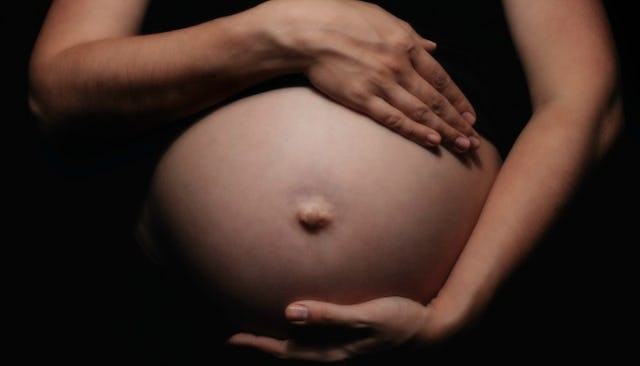5 Reasons Why Pregnancy After Miscarriage Is Different

I’ll never forget that moment. I sat in my doctor’s exam room, eagerly awaiting a first glimpse of my baby’s heartbeat. I imagined watching it, a tiny flicker on the screen, feeling instantly connected to the life inside me. I never imagined the doctor looking at me and saying, in his most clinical voice, “I’m sorry. There’s no heartbeat.”
That moment has stayed with me, seven years and two kids later. A miscarriage is a scar that never fully fades; no matter how much time goes by, a shadow of that loss always lingers. For me, losing a pregnancy was difficult. But what was surprisingly harder, in some ways, was being pregnant again after this loss. All around me, friends were happily announcing their pregnancies, throwing showers, dreaming of their children’s future. I wanted to feel joyful about my pregnancy. But deep down, I was terrified. Between the constant fear of things I couldn’t control and obsessing over those factors I thought I could, I was a wreck for nine months.
There are many reasons why being pregnant after a miscarriage is different. Here are just a few:
1. Fear of the Unknown
When I became pregnant with my daughter, I dreaded my first prenatal visit. Relief at seeing a heartbeat quickly turned to panic at learning my progesterone levels were low. As I filled the supplement prescription, I felt myself being submerged into an all-too-familiar nightmare. After each appointment, I waited to learn my “levels” like a convict waiting to hear their sentence. I felt trapped in a body that didn’t work, that couldn’t hold onto what mattered most. Even when I made it past the first trimester, my hesitation continued, shrouding every moment in a layer of anxiety and fear.
2. Loneliness
With my first pregnancy, we told our families right away. It was Christmas, and we were celebrating. I never dreamed I would be telling everyone we’d lost the baby a month later. With my next pregnancy, I was determined not to make the same mistake. We waited a long time before telling anyone, which made me feel protected but also alone. My pregnancy became a secret to keep instead of happy news to share. I held everything inside — exactly when I needed my friends and family the most.
3. Guilt and Self-Doubt
During this time, I often questioned my decisions and worried that any lapse in judgment might end my pregnancy. I was nervous to lift chairs at a work event and scared to help a family member carry luggage up the stairs (positions I found myself in because I was too afraid to tell anyone I was pregnant). When you’ve had a miscarriage, it’s easy to grab hold of the idea that by doing everything “right” you have some semblance of control—and by doing something “wrong,” you’re to blame for the loss. It’s a heavy burden to bear.
4. Morning Sickness Envy
Most women dread morning sickness. I found myself longing for it. I craved the physical reassurance that things were “normal” inside me. I desperately wanted to know that my baby was there, growing and developing as expected. My lack of morning sickness felt like a punishment. Every moment I didn’t feel nauseous was a reminder of how little I understood what was happening inside of me and how little I could control it.
5. Fear of Joy
For a long time, I found myself prefacing every statement about my baby with, “If we make it through the pregnancy…” or “If the baby is born….” I was terrified of letting in too much joy. I was uncomfortable buying furniture for the nursery, shopping for onesies, or even thinking of names. Looking back, I wish I had let myself enjoy it more. But my wounds were still fresh. I didn’t want to indulge hopes that might lead to another heartbreak.
Sometime in my ninth month, I began to relax and feel hopeful that soon I’d hold my baby in my arms. I stopped saying “if” and started saying “when.” When my daughter was born, I knew she was the baby I was meant to have. But as blessed as I am with my children, when I hear of a friend’s miscarriage, I feel a pang in my heart.
I’m glad more people are shining a light on this issue by acknowledging and sharing their sadness about such a difficult subject. It was this openness—talking with others who’d been through it—that helped me get through those nine long months. Hopefully this openness will help others to know that there’s light, and even hope, beyond the darkness.
This article was originally published on